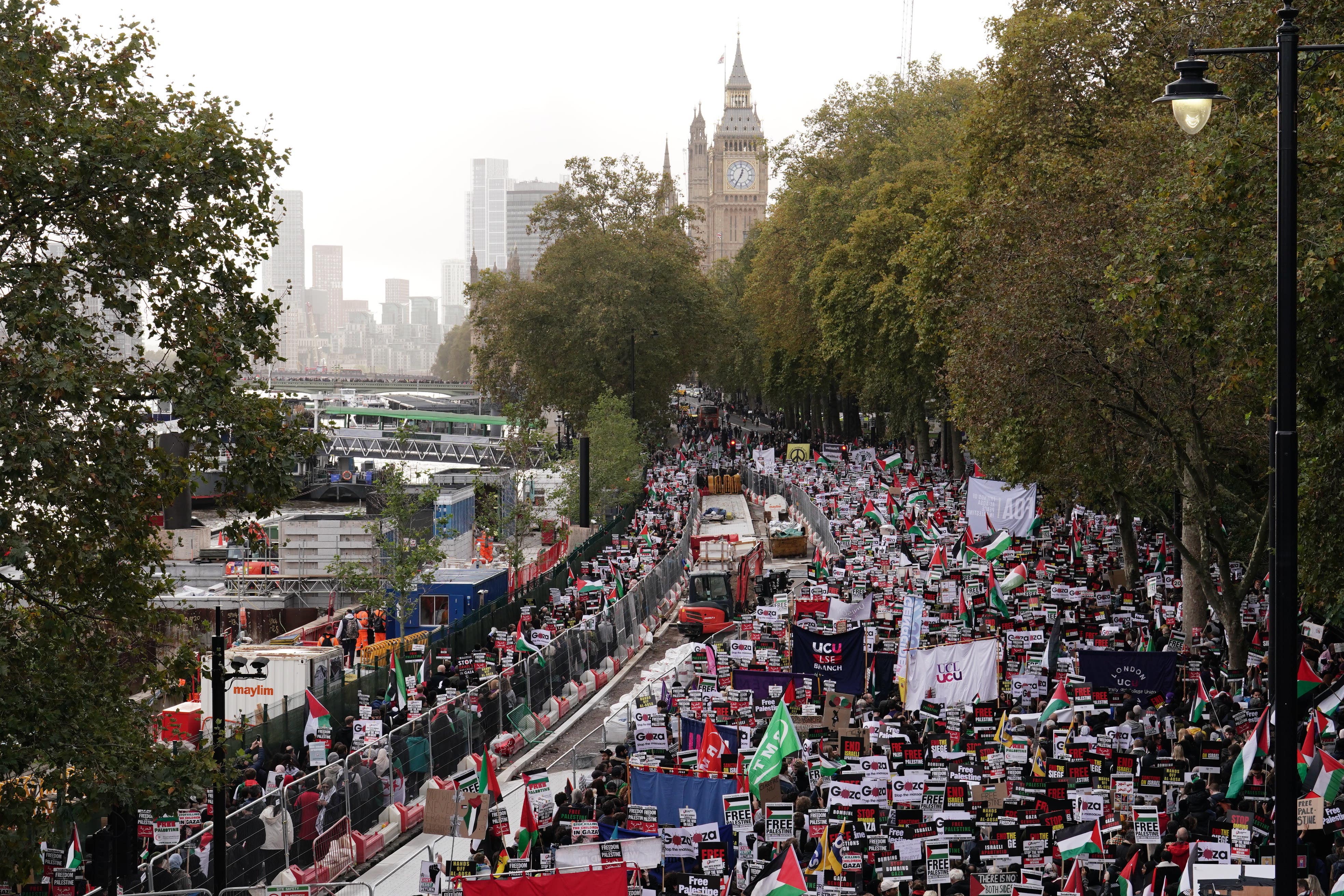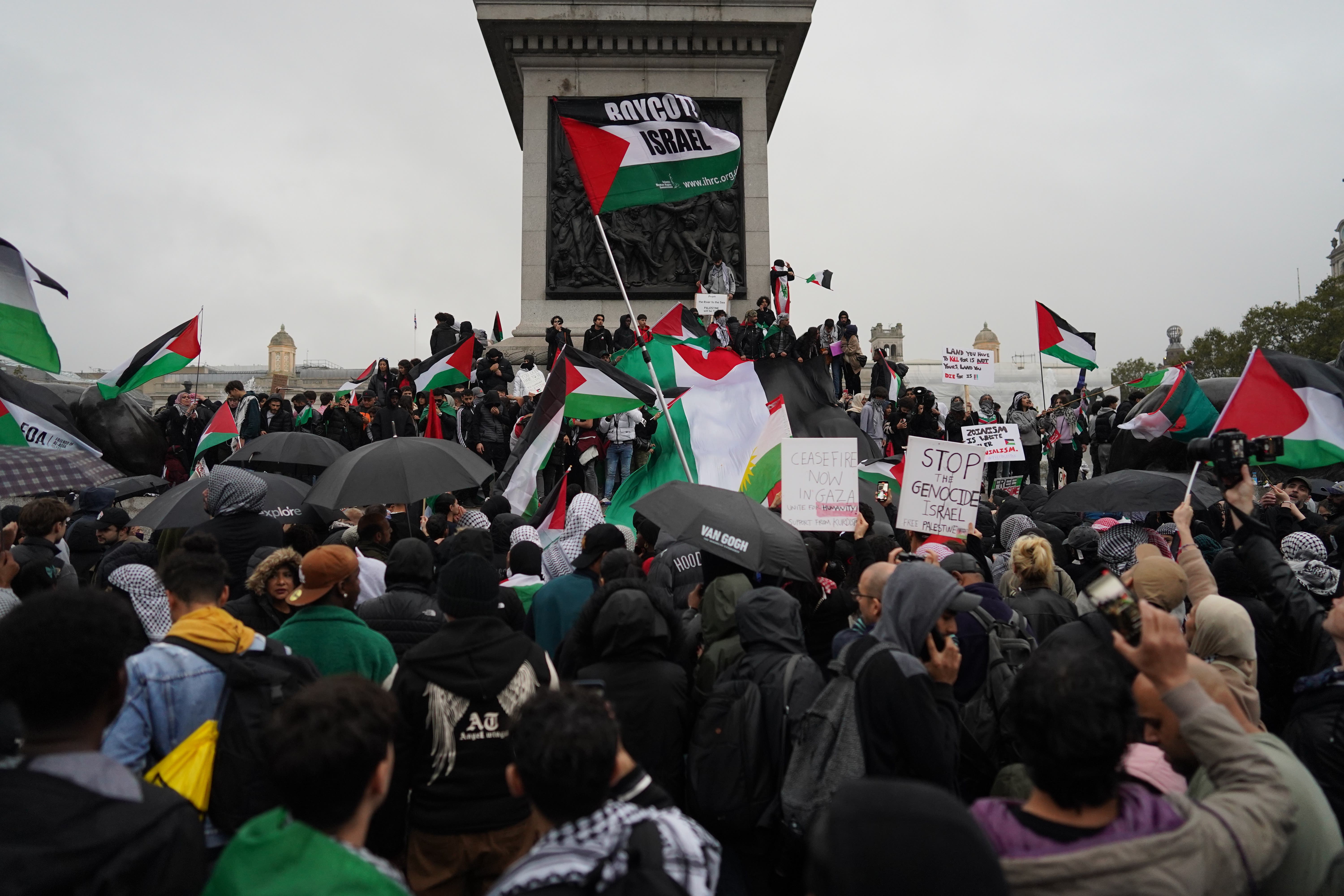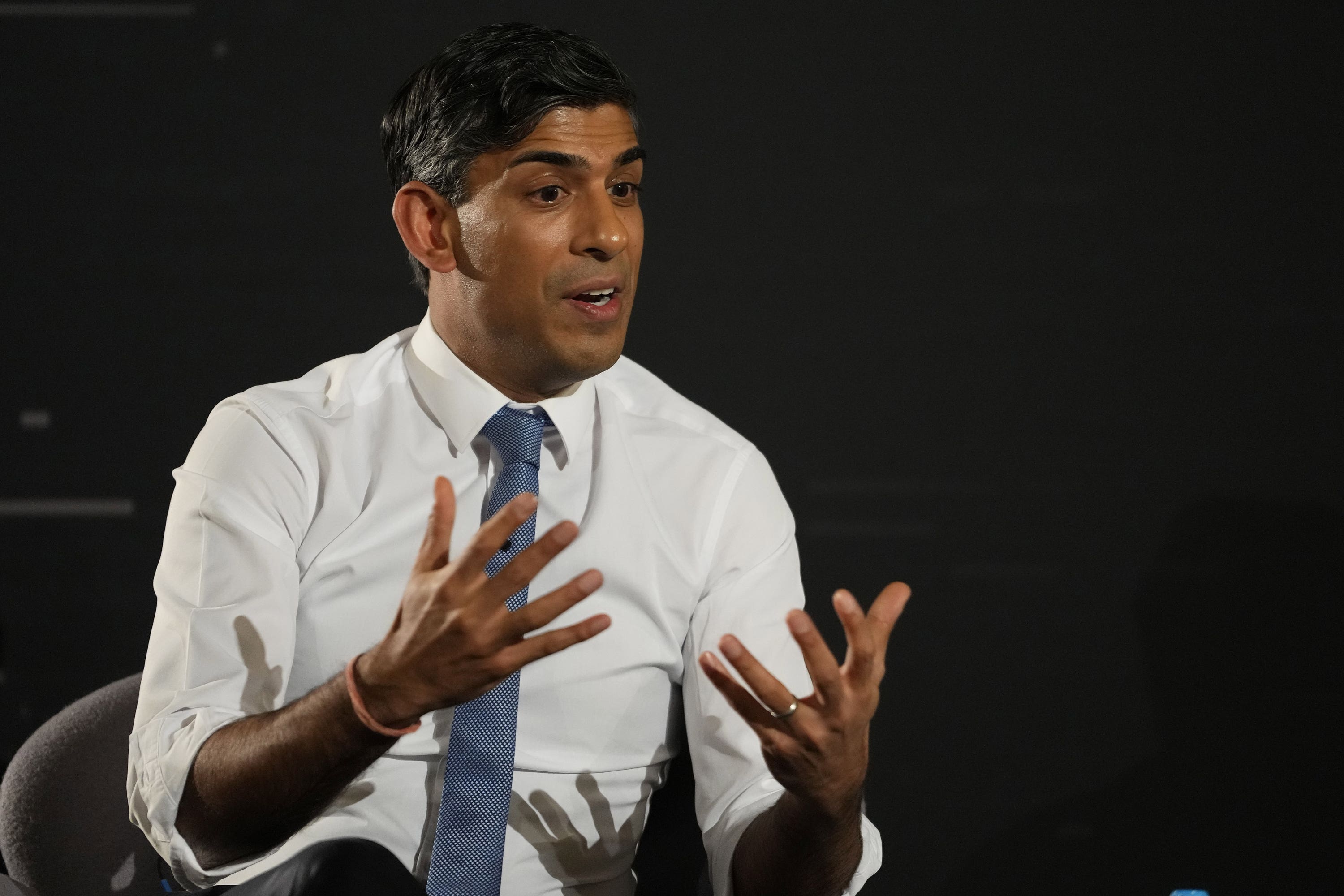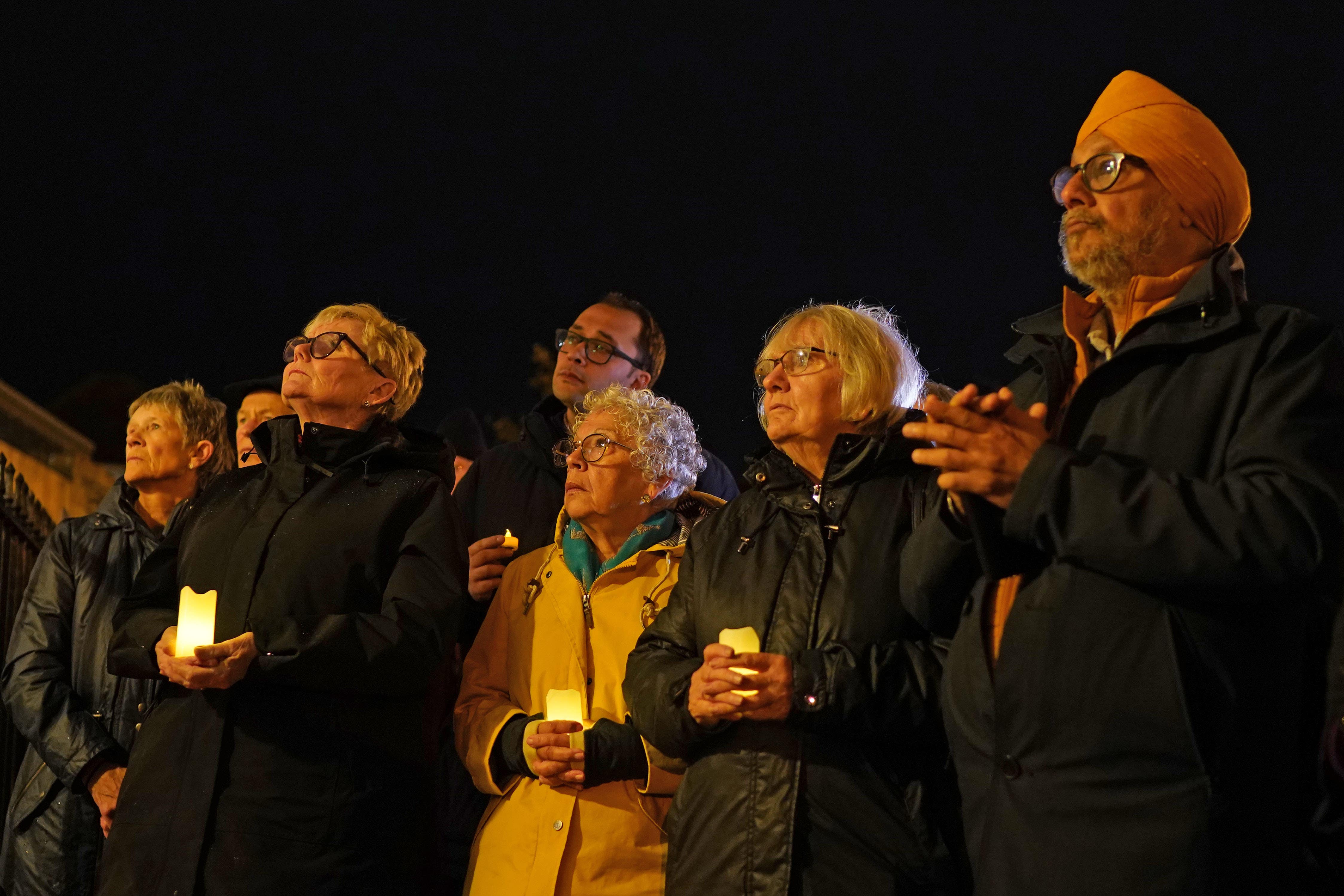Pro-Palestine protest march row explained as thousands set to protest again in London
Activists will descend on the capital for the third successive weekend calling for an immediate ceasefire
Your support helps us to tell the story
From reproductive rights to climate change to Big Tech, The Independent is on the ground when the story is developing. Whether it's investigating the financials of Elon Musk's pro-Trump PAC or producing our latest documentary, 'The A Word', which shines a light on the American women fighting for reproductive rights, we know how important it is to parse out the facts from the messaging.
At such a critical moment in US history, we need reporters on the ground. Your donation allows us to keep sending journalists to speak to both sides of the story.
The Independent is trusted by Americans across the entire political spectrum. And unlike many other quality news outlets, we choose not to lock Americans out of our reporting and analysis with paywalls. We believe quality journalism should be available to everyone, paid for by those who can afford it.
Your support makes all the difference.Tens of thousands of pro-Palestine protesters have attended marches across the UK since Israel renewed its attacks on Gaza in recent weeks.
Thousands are expected to march in London today, as a row has broken out over future demonstrations potentially disrupting Remembrance Day events and further action expected in the coming weeks.
Activists will descend on the capital for the third successive weekend calling for an immediate ceasefire due to Israel’s continued bombardment on the Gaza strip in retaliation for Hamas’s terror attack on Israel on 7 October.
Previous protests, and counter demonstrations, have come under scrutiny, with a small number of campaigners arrested for alleged hate crimes.
And on Friday, a row erupted when Rishi Sunak backed a crackdown on what he condemned as “provocative and disrespectful” pro-Palestine marches due to be held on Armistice Day.
The prime minister said the “right to remember, in peace and dignity, those who have paid the ultimate sacrifice” had to be protected and Home secretary Suella Braverman went a step further, claiming it was unacceptable to “desecrate” the day with a “hate march” through London.
But the Labour mayor of London Sadiq Khan accused the government of playing politics over the “terrible tragedy” unfolding in Gaza, after organisers taking to the streets on November 11 said they had no plans to disrupt Remembrance weekend events.
Organisers said previous marches had attracted 100,000 people and claimes they were disrespectful was “dangerous and disingenuous”.
Below is information about future marches due to take place in London:

What marches are due to take place?
The official organisers of the marches, the Palestine Solidarity Campaign (PSC), said demonstrations will be taking place every Saturday until a ceasfire is called.
The next demonstrations are due to happen on Saturday November 4 and will see action taking place across the UK.
Next week, on November 11, a national protest in London is due to take place but organisers have insisted they have no plans to disrupt the 11am silence and that their route will avoid the Cenotaph altogether.
A PSC spokesperson told The Independent that some form of action will be taking place every weekend for the foreseeable – or until a ceasefire is called.

How many people are due to attend?
Around 100,000 pro-Palestinian demonstrators have attended previous protests and similar numbers are expected at future events.
More than 1,000 Metropolitan Police officers have been deployed across London for previous rallies to police the marches.
Rallies are also being held in other parts of the UK calling for a ceasefire, including in Manchester and Glasgow.
Around 3,000 gathered in Belfast for a rally which walked along Royal Avenue to City Hall.
What have the authorities said?
Mr Sunak has branded the upcoming 11 November demonstration “provocative and disrespectful”.
In a statement released on Friday, he said that there was a “clear and present risk that the Cenotaph and other war memorials could be desecrated” by the march.
Mr Sunak added: “I have asked the Home Secretary (Suella Braverman) to support the Met Police in doing everything necessary to protect the sanctity of Armistice Day and Remembrance Sunday.”

The Met Police has vowed to use all its powers to stop the disruption of commemorations and said officers will be deployed across the capital that weekend as part of a “significant policing and security operation”.
Met Police Commissioner Sir Mark Rowley said he was “deeply concerned” about the effects of protests on day-to-day local policing and admitted he may have to look to other forces to help deal with the ongoing action.
It said protest groups have not indicated plans to march on Remembrance Sunday on November 12 but a significant demonstration is expected on the Saturday.

What have organisers said?
Organisers of the march have said claiming the march as disrespectful is “dangerous and disingenuous”.
They have said they will avoid the Whitehall area where the Cenotaph war memorial – the focus of national remembrance events – is located.
Ben Jamal, director of PSC, said: “The attempts to frame the planned national demonstration on Saturday, November 11, part of a cycle of weekly marches calling for a ceasefire, as disrespectful to Remembrance Day commemorations is at best misinformed and at worse an incitement to public disorder.”
“This is a march calling for a ceasefire in order to stop the current slaughter in Gaza. To highlight this democratic action taking place on November 11th, well away from Whitehall, as disrespectful is dangerous and disingenuous politicking that defames many hundreds of thousands of people who want the current violence to stop.”

Join our commenting forum
Join thought-provoking conversations, follow other Independent readers and see their replies
Comments